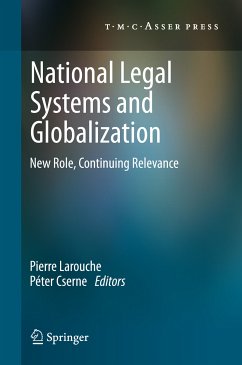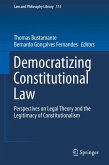For the researchers involved in this book, the prospects of national law seemed less dire than is usually acknowledged. The project team shows that globalization, instead of threatening national legal systems, puts them in a new role and gives them continuing relevance. First of all, once one takes a more functional view of the law, based on law and economics and comparative law literature, harmonization or unification of national legal systems is no longer a foregone conclusion. Secondly, fundamental constitutional principles continue to bear in the era of multi-level and transnational governance: they become governance principles, divorced from specific institutional settings. Finally, looking beyond regulatory competition and comparative law, legal emulation provides a rich and fruitful model to explain the interplay between legal systems. This book explores these three themes, both at a theoretical level and in the light of specific examples. It sheds a new light on the fate ofnational legal systems, with a more optimistic outlook. Researchers and practitioners alike will experience how this research project brings us a step forward in the understanding of the evolution of national legal systems in the globalization era.
The research for this book, in which a team of experts in comparative law and law and economics took part, was commissioned and funded by HiiL (The Hague, the Netherlands), as a project named Convergence and divergence of national legal systems: coping with the challenges of globalization. It was carried out at the Tilburg Law and Economics Center (TILEC) of Tilburg University (the Netherlands) under the direction of Pierre Larouche.
Pierre Larouche is Professor of Competition Law at Tilburg University and a founding director of TILEC. Péter Cserne is now Senior Lecturer in law, University of Hull (United Kingdom) and an extramural fellow of TILEC.
Dieser Download kann aus rechtlichen Gründen nur mit Rechnungsadresse in A, B, BG, CY, CZ, D, DK, EW, E, FIN, F, GR, HR, H, IRL, I, LT, L, LR, M, NL, PL, P, R, S, SLO, SK ausgeliefert werden.









